[Shenzhen, China] Interview with a local subsidiary about what happened after entering China
table of contents
- 1 What prompted you to enter the Chinese market? What are your current initiatives in China?
- 2 What are the differences between business in Japan and China?
- 3 Please tell us about the gap between the Chinese cloud market and the Japanese market
- 4 What are the differences between MSP technologies and companies in China and Japan?
- 5 What kind of reaction has Beyond's technology and services received in China?
- 6 Please tell us about the strengths and things that only Hitotsu Tech can do
- 7 How do you differentiate yourself from Chinese IT vendors?
- 8 Please tell us about your future strategies and business developments for Pioneer Technology
- 9 What is the most important thing you want to convey to Chinese customers?
- 10 summary
Beyond's Chinese office, Beyond Technology (Shenzhen) Co., Ltd. , began full-scale operations in China on February 19, 2024.
This time, we interviewed two people, Mr. Ohara and Mr. Takagi, from Bidto Technology (Shenzhen) Co., Ltd
◆ Interviewer: Asaka Komatsu (Beyond Public Relations)
What prompted you to enter the Chinese market? What are your current initiatives in China?
Ohara : Around 2018, Chinese services such as Alibaba Cloud began to enter the Japanese market, and when we sensed the momentum of Chinese IT services, Beyond also began to consider entering the Chinese market.
The first thing we did in preparing to expand into China was to visit various regions in China. We continued our research by having interviews and meetings with local Chinese companies and similar Japanese companies that had expanded into China, and at the same time, while repeatedly considering expanding into China, we also gradually made progress in learning how to open a local subsidiary in China and preparing to do so
However, during this time, the COVID-19 pandemic made it impossible for us to travel to China, and Beyond's research and exchanges in China came to a halt for a time. However, even in times like these, we were determined to move forward even if just a little, so we continued to gather information online and look for partner companies
Takagi: In the Shenzhen and Guangdong areas where we are located, there are a lot of manufacturing customers, but on the other hand, there are few IT companies like us that are primarily engaged in server infrastructure business. We are working to consider how to deploy Beyond's services in such fields and what kind of needs there are.
---Is the business of the Chinese office positioned as an extension of the business in Japan?
Ohara : First of all, Beyond operates a business called "MSP" in three countries: Japan, China, and Canada, which handles the construction and operation of cloud services and servers such as AWS and Alibaba Cloud.
The business of this Chinese office is an extension of the business we do in Japan, but when asked, "If we can do it in Japan, can we do it in the same way in China or overseas?" that's a different story
We feel that localization is necessary to adapt to the culture and business practices of China and other countries, and to meet the needs of each customer, so we are constantly experimenting in this area
What are the differences between business in Japan and China?
Ohara: In Japan, when you meet a customer for the first time, you often exchange business cards, greet them in person, exchange information, and make contact if there's anything else you need.
However, in China there is a strong tendency towards an introduction culture, where people buy or do business with companies they know, and I feel that these differences in business practices make it difficult. Also, with the widespread use of IT services and apps, the fact that most things can be done using WeChat and its mini-programs is very advanced, and I think this is a big difference from Japan
<Scenes from the 3rd CHWE Global Cross-Border E-Commerce Exhibition>
---Are WeChat and social media important in China?
Ohara: Smartphones are not just important for us, but are also very important lifelines. In fact, we can't do anything in our daily lives without a smartphone. In business, too, WeChat is the basis for communication, with over 90% of transactions being completed through WeChat. Many people don't even have paper business cards, and most greetings begin with exchanging contact information on WeChat.
---Are paper business cards not used very often?
Ohara: Paper business cards are available, but they don't seem to be as important as they are in Japan. Also, when exchanging contact information on WeChat, you can send business card data, and that data can also be created using the WeChat mini-program app, so there's almost no need to exchange paper business cards.
Takagi: When I was in Japan, one thing that was mentioned as a difference between business in China and Japan that made the biggest impression on me was the sense of speed. Before I went to China, I had heard that communication and responses were very fast in China, but when I actually worked there, I was impressed by how quickly and agile the communication and responses were. I had an image of speed, but since I had nothing to compare it to, it was just an image. As with my regular work, everyone I interact with responds really quickly.
For example, in terms of quality, I think Japanese people have a basic sense of "trying to submit something as close to 100% as possible to the customer," whereas in China, it seems like they work by "submitting something to the customer at 50-60% completion, then making revisions to get it to 80%, and then going back and forth a few times to get it to 100%."
In terms of speed, it's certainly fast, and it feels like everything is moving forward. When I think about Japanese business practices and how work is done, I feel there are quite a few differences
--- Was this something you could only feel by actually going to China?
Takagi: That's right. Even if you're in Japan, you can find out about it by searching on YouTube or Google, or by listening to stories from friends. I think we were able to learn about it in a real sense because we had the background of actually living and working in China.
---So if you don't have a sense of speed, you won't be taken seriously?
Takagi: I think it's possible. For example, let's say we proceed based on our common sense and predict that "this will be best for the customer."
However, if we don't understand that our own definition of what is best is not necessarily what our customers think is best, I think that a difference in speed will become apparent. In this regard, I think it is necessary to take action to adapt to the culture of each country to some extent
Please tell us about the gap between the Chinese cloud market and the Japanese market
Ohara: In Japan, AWS has a large market share, followed by Azure and GCP, but in China, Alibaba Cloud has a large market share, followed by cloud services such as Huawei Cloud and Tencent Cloud. AWS and Azure are also available in China, but they do not seem to have the overwhelmingly large market share they do in Japan.
---When you think of cloud computing in China, does Alibaba Cloud come to mind?
Ohara: In addition to Alibaba Cloud, there are also cloud services such as Huawei Cloud and Tencent Cloud, as well as cloud and hosting services provided by local Chinese data center operators, and Chinese customers use different server environments depending on their needs. This is something that varies from person to person, so it's difficult to generalize.
---Do you handle the Chinese version of AWS?
Ohara: Beyond is multi-cloud compatible, and we build and operate infrastructure using a variety of cloud platforms, including AWS and Alibaba Cloud. The same system is in place at Beyond's China office, where we build and operate on the cloud that best suits our Chinese customers' needs, so either is fine.
Furthermore, the Chinese version of AWS can only be opened and used by companies with local Chinese subsidiaries, so Japanese companies without local subsidiaries in China cannot use it even if they want to. However, Beyond has established a local Chinese subsidiary, which allows it to use the Chinese version of AWS and provide technical support for the Chinese version of AWS
What are the differences between MSP technologies and companies in China and Japan?
Takagi: I previously attended a Huawei Cloud partner event (Huawei Cloud APAC Partner Connection Summit) held in Dongguan, China, and when I spoke with partner companies similar to Beyond, I got the impression that many of them were providing MSP-like services in a specific industry.
For example, I heard that some companies specialize in fintech or AI-related fields and industries, and even build and operate the infrastructure. Certainly, if you specialize in a certain field or industry, you can reuse similar technologies, even if the details are different, and it creates an environment where knowledge can easily accumulate within the company, which seems to make management and operation more efficient within the company
Currently, Beyond's China office does not focus on any particular industry, and the sales and engineering teams work together depending on the client's case or project. However, with other overseas vendors, it seems that there are surprisingly many companies that focus on a specific industry and offer MSP services, so this is what sets Beyond apart
Indeed, by narrowing down the target industry or field, it may be less likely that you will be in complete competition with other vendors, and I felt that it would also help you differentiate yourself from your competitors

<Huawei Cloud partners from Thailand>

< Huawei Cloud partner networking event >
What kind of reaction has Beyond's technology and services received in China?
Ohara: Currently, we are working on projects mainly with Japanese companies, so when we introduce Beyond's technology and services to them, we often hear that they are aware of issues with the current state of their systems at their local Chinese subsidiaries.
Additionally, there are cases where people say, "We're somewhat familiar with AWS in Japan, but we don't know much about Chinese cloud services like Alibaba Cloud," and there may be surprisingly few Japanese IT vendors that can flexibly address these issues. When faced with situations like this, I feel that there are many Japanese companies with the potential concern of "if only we could turn to a Japanese IT vendor that understands Chinese cloud technology."
Takagi: Beyond not only provides technical support, but I think a major feature of the company is that it has engineers with extensive knowledge of server technology available 24 hours a day, 365 days a year.
This may not be unique to China, but when I talk to various people, I often hear things like, "We accept inquiries 24 hours a day, 365 days a year," but "actual work is only done on the next business day," or "We outsource the actual server operation work to a separate external company."
In contrast, Beyond, as is the case in Japan, has received positive feedback from customers for its ability to provide 24/7 technical support, with its own engineers interacting with customers. This has also been met with positive feedback in China, where the service has been rolled out
---Are the strengths of Japanese services resonating in China as well?
Takagi: That's right. The Chinese market is highly competitive on price, but Beyond has this advantage, which I think gives it the strength to demonstrate the value of its services.
---Is price a particularly important factor in China?
Takagi: This is not limited to IT services, but I think that ultimately it comes down to price competition in any field. That may be fine for those receiving or enjoying the service, but for those providing the service, how they perceive and offer the price is a very important factor.
Please tell us about the strengths and things that only Hitotsu Tech can do
Takagi: First of all, I think it's really important to have a local subsidiary in China, and through the actual experience of being stationed there, I'm absorbing information about China firsthand, so my knowledge is increasing every day. Another advantage is that I can deliver information that is advantageous, rather than just information picked up from the news or the internet.
Unless you are actually in China, it is often difficult to understand the situation, so I think that one benefit of sending out an approach from China such as "This is how we will proceed" is that it puts you in the customer's position
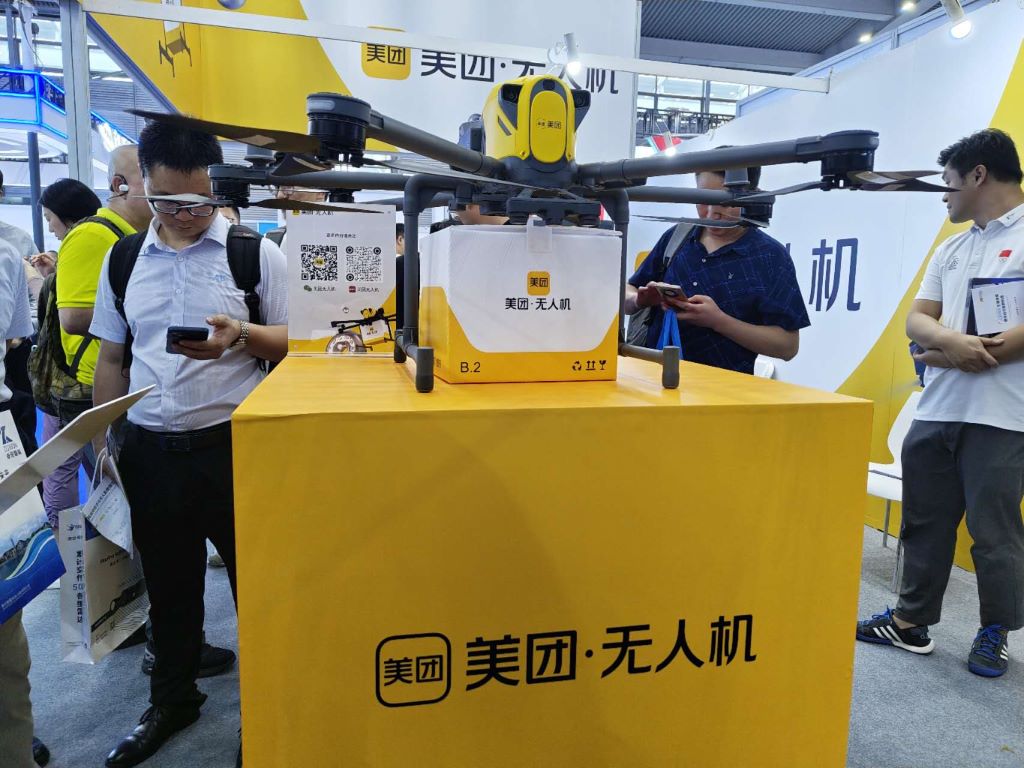
< "Meituan Unmanned Aircraft" (delivery drone) on display at UASexpo 2024>
---It seems like it would be reassuring for customers
Takagi: Yes, I would be happy if it could be a source of comfort to you.
Ohara: Our China office is based in Shenzhen, known as a hub of technological innovation in Asia, which allows us to quickly catch up on a variety of new technologies and ideas.
Other Japanese IT vendors tend to have their headquarters in places geographically close to Japan, such as Shanghai or Dalian, but perhaps because Shenzhen is home to many hardware companies, it seems that there are few Japanese IT vendors that deal with server and software services like Beyond, so Beyond has an advantage here as well
We feel that the advantage of Shenzhen's location is that we can provide locally based IT support to Japanese companies in need in Guangdong Province, and since it is close to Hong Kong, we can broaden our business operations
In addition to being a Chinese cloud MSP, we are also able to handle web system development, Chinese website production, WeChat mini-program development, etc. We can work closely with Beyond's Japanese headquarters to advance projects, which is another source of peace of mind for our customers
---Have you incorporated anything into your business since you established a local subsidiary in China?
Ohara: Yes, opening a local subsidiary in China was one example, but there were many things we didn't realize until we actually started working and living in China. Internet issues were particularly troublesome, and it was thanks to our experiences that we were able to launch a SIM service that can be used in Japan, China, and overseas.
We came up with this service because we felt that "the problems we face are also needed in the world," and it's not just us who use it; other Beyond members also use it when they travel or go on business trips abroad
◆ Chinese SIM service "ChocoSIM - powered by beyond -"
How do you differentiate yourself from Chinese IT vendors?
Ohara: Beyond's MSP supports our customers' businesses by ensuring that their systems and applications operate stably 24 hours a day, 365 days a year.
However, in order to maintain high-quality technical support 24 hours a day, 365 days a year, there is an inevitable barrier of "nighttime support," so we believe it would be difficult for a single country to provide stable technical support at all times
In the case of Beyond, they have a base in North America (Canada) as a wholly owned subsidiary, and they are able to provide high-quality technical support by taking advantage of the time difference between day and night, which differentiates them. I think there are few IT vendors that have established such an operational system, not only in China but also in Japan
Takagi: What we particularly want to appeal to Japanese corporate clients in China is, of course, the language aspect, but also the ability to provide services that are similar to the experience of working in Japan, with the same quality as in Japan. In a sense, bringing out a Japanese feel and working together with clients is what differentiates us from local Chinese IT vendors.
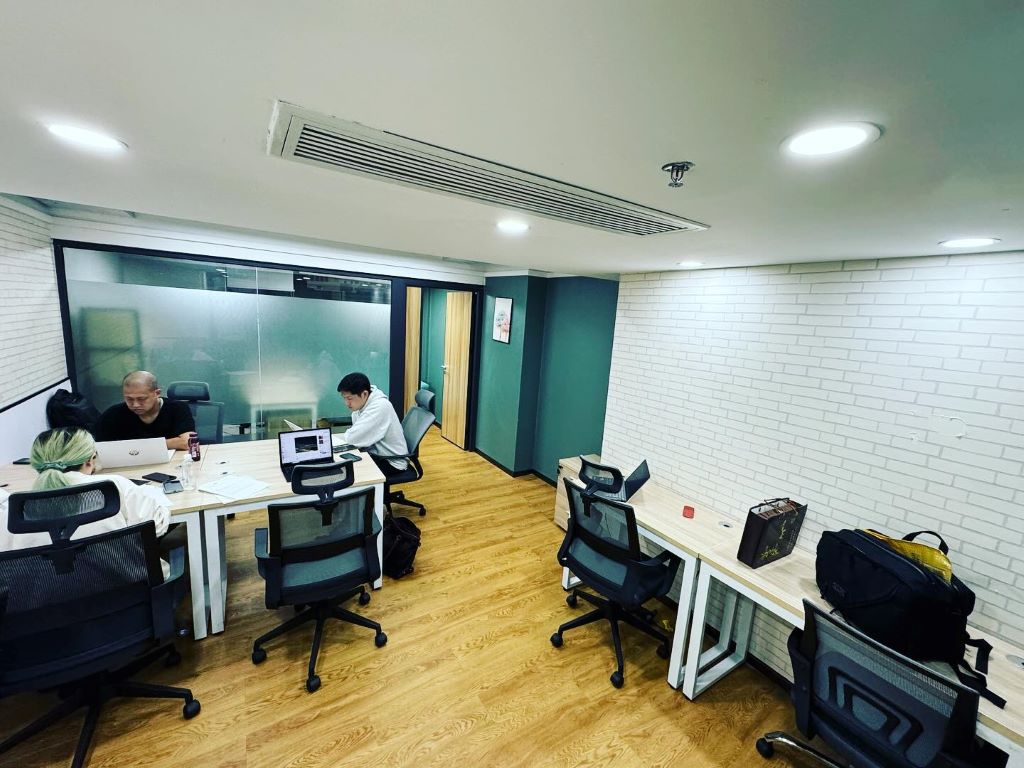
< Inside the P&P Technology office >
Please tell us about your future strategies and business developments for Pioneer Technology
Ohara: We will develop services that will become synonymous with "Piyoude Technology." In addition, it would be interesting to re-import the services developed by Piyoude Technology to Japan and develop them in the Japanese market. We would also like to expand our market within China, and provide services to countries such as Singapore, using Shenzhen as our base.
---So it's not just limited to China
Shenzhen has good transport access to Singapore, a financial and logistics hub in Southeast Asia, and is in an environment where business travel is relatively easy. For this reason, we are considering business collaboration with the region, including Singapore, in the future
Although Singapore is not exactly the same as China, there are likely to be some similarities, so I think it is one of the markets that is relatively easy for Japanese people to expand into, taking into account cultural differences and time differences
Also, perhaps due to the weak yen, the number of foreign tourists in Japan is currently increasing significantly. Looking ahead, we would like to develop WeChat mini-programs for Japanese companies to attract inbound tourists from both Japan and China
What is the most important thing you want to convey to Chinese customers?
Ohara: "Beyond is an MSP in China too," so I would encourage everyone to try out Beyond's services.
Takagi: Beyond is flexible and has many highly skilled engineers, so we would be happy to be entrusted with the servers and infrastructure in China!
summary
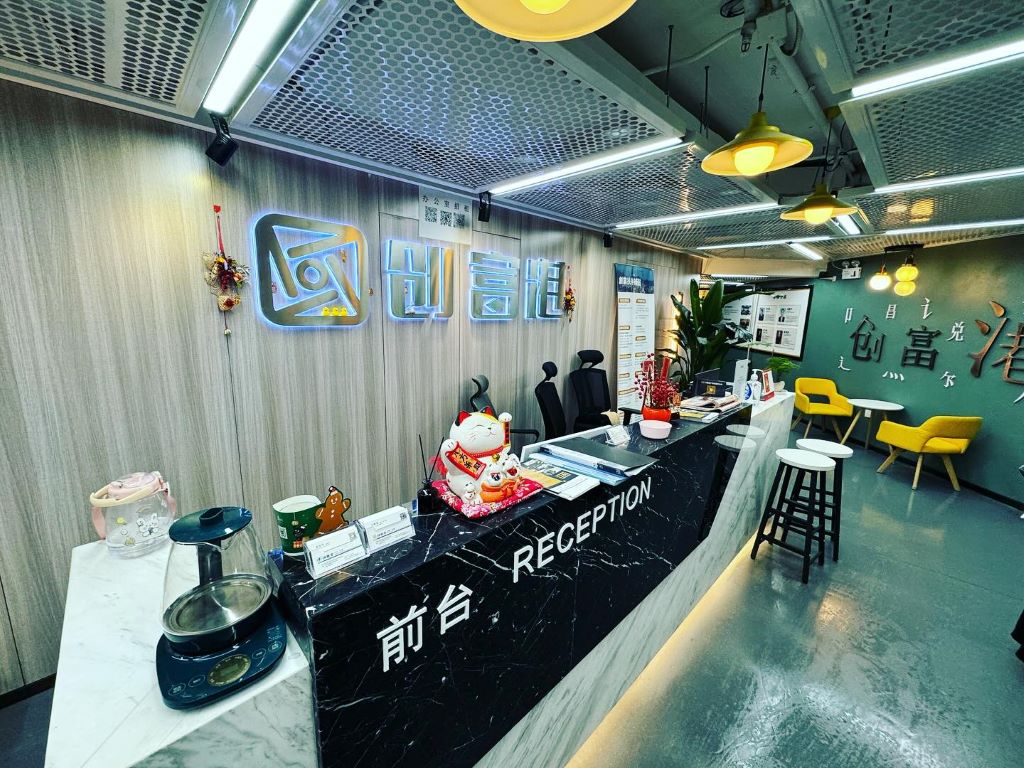
< Front desk of the rental office where Biyoude Technology is located >
This concludes the interview with Beyond's China office
Through this interview, I feel that my image of China, which I previously had a hard time imagining, has gradually become clearer by listening to his actual voice.Of course, this is only a small part of what we know about China and Pioneer Technology, so I would like to continue catching up on various information in order to deepen my understanding even further
The establishment of Beyond's China office, Piyoude Technology, will undoubtedly have a major impact on Beyond as it creates a new future. Please continue to pay attention to the developments of Beyond's China office, Piyoude Technology
Beyond and Biyoude Technology provide technical support for cloud/server construction and operation to Japanese companies and local corporations expanding into China
If you are a Japanese company in China and have any problems with cloud/servers or systems, please feel free to contact us
◆ Interviewer: Asaka Komatsu (Beyond Public Relations)
Company Profile
● About Beyond Technology (Shenzhen) Co., Ltd. (
https://beyond-shenzhen.cn ) *English name: Beyond Technology Shenzhen Co., Ltd.
-Chairman
: Haraoka Masahiro
General Manager: Ohara Yuya
Established: August 31, 2023
Capital: 20 million yen (Japanese yen)
Business activities: Server support, system development, and IT business support-
●
Main services
◇ China cloud / server construction, operation and maintenance
◇ WeChat mini-program development
◇ AWS China region cloud construction, operation and maintenance, and monitoring services
◇ Alibaba cloud construction, operation and maintenance, and monitoring services
◇ Chinese SIM service "Choco SIM - powered by beyond -"
◇ China Cybersecurity Law Grade Protection System Certification Support
◇ Japan-China IT business support

 8
8






